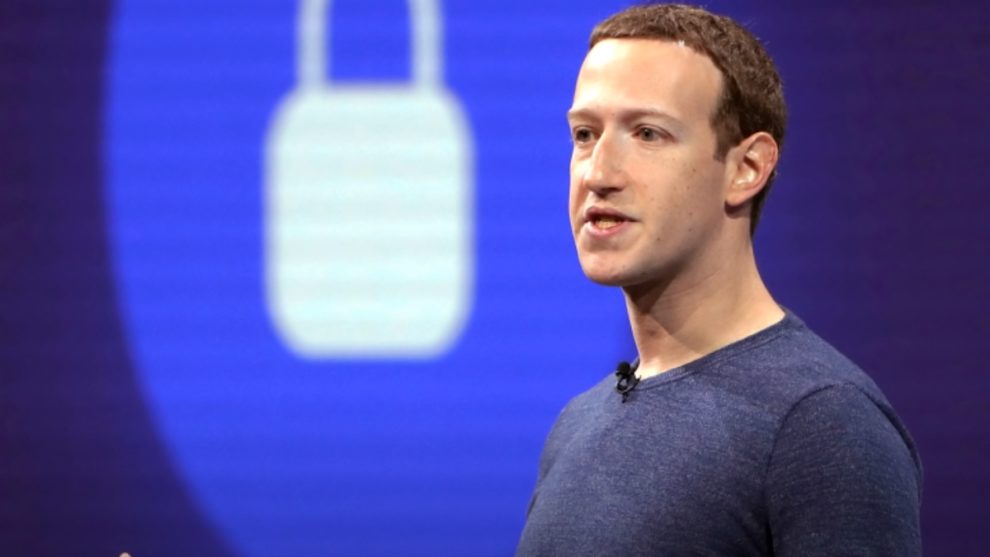According to leaked internal documents obtained by The Financial Times, Facebook’s top brass intervened to allow US politicians and celebrities to post whatever they wanted, overriding the network’s professed high moral ground designed to curb misinformation and harmful content.
Employees claim that after being stung by conservative accusations of bias, Facebook allowed right-wing figures to break the platform’s own rules.
“In September 2020, just ahead of the US presidential election, the author of an internal memo wrote that ‘director-level employees‘ had ‘written internally that they would prefer to formally exclude political considerations from the decision-making process’,” FT said in a story Monday.
Another employee claimed in an internal note dated December 2020 and reported by the Financial Times that the company’s public policy team blocked decisions to remove posts “when they see that they could harm powerful political actors”.
“In multiple cases, the final judgment about whether a prominent post violates a certain written policy are made by senior executives, sometimes Mark Zuckerberg,” the author added.
In another case from 2019, Zuckerberg was accused of being personally involved in the decision to allow a video that claimed abortion is “never medically necessary.”
The post, which had been removed by a moderator, was re-posted.
The documents, which were part of a larger cache dubbed the “Facebook Papers,” were disclosed to US regulators and provided to Congress in redacted form by whistleblower Frances Hougen’s legal counsel.
These redacted documents were obtained from the US Congress by a group of media organisations.
In a foreshadowing of increased media attention, Haugen tweeted that she was looking forward to meeting with a joint committee of the British parliament on Monday to draught online safety rules.
While Facebook declined to respond to FT’s queries, Joe Osborne, a Facebook spokesperson, said: “At the heart of these stories is a premise which is false. Yes, we’re a business and we make profit, but the idea that we do so at the expense of people’s safety or wellbeing misunderstands where our own commercial interests lie. The truth is we’ve invested $13bn and have over 40,000 people to do one job: keep people safe on Facebook.”
A former Facebook executive told the FT that Zuckerberg had long told staff to aim for what he called “unimpeachable neutrality”.
But three other former employees said they observed “how Facebook applied its own rules in an inconsistent and haphazard way, with special treatment for celebrities”.
One former integrity team employee said: “For the people running Facebook, it seems like they care much more about not appearing biased than actually not being biased. Often their efforts at the former make the latter worse.”
In a memo published in July 2020, first reported by BuzzFeed, Facebook said it had decided not to reduce the distribution of “political publishers” ahead of the election but noted that such a move could risk “accusations of shadow-banning and/or FB bias against certain political entities” during the November vote.
When Trump claimed that Covid-19 was less lethal than flu, Facebook stepped in to censor him. However, according to the December 2020 memo, efforts to demolish “repeat offenders” were often reversed, “influenced by input from Public Policy”, FT reported.
The employee wrote that decisions were made to exempt “publishers on the grounds that they were “sensitive” or likely to retaliate”.
Another employee involved in efforts to curb hate speech on the platform accused Facebook of favouring media outlets Breitbart, which has been included on the company’s high-quality news tab since 2018.
“We make special exceptions to our written policies for them and we even explicitly endorse them by including them as trusted partners in our core products,” the staffer said.
In June 2020, one employee proposed the formation of a “internal oversight board” comprised of Facebook employees based in offices around the world to assist the company in making decisions.
Fidji Simo, the then-head of Facebook apps, responded by saying that Facebook was working on forming a small internal oversight board team.
“It’s so obviously a conflict of interest,” one former employee from the integrity team told the FT. “They should be as far away from each other as possible, not reporting to the same bosses.”
Facebook is embroiled in a slew of bad press. According to the Wall Street Journal, it has an internal system called “cross-check” that was sometimes used to protect the fat cats even when they broke the platform’s rules through whitelisting.
The social media behemoth has stated that it is working to clean up the mess.
Separately, a whistleblower filed a complaint with the US Securities and Exchange Commission on Friday, as first reported by the Washington Post and reviewed by the Financial Times, alleging that Facebook’s public policy team would “over-index towards pleasing Trump and the Trump administration”.
